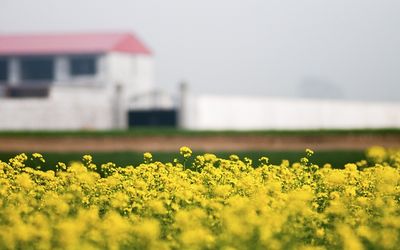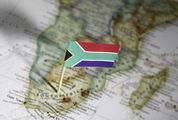Cites convention will consider a record number of proposals
by Pericles Anetos
2016-08-17 16:40:17.0
IN AUGUST, Johannesburg will host the Convention on Illegal Trade in Endangered Species of Wild Fauna and Flora (Cites), which could lead to trade bans on more species.
A record number of proposals — 62 — will be put to the vote at the 17th meeting of the convention, where 182 countries will meet to regulate the trade in species boost the fight against wildlife crime.
Theressa Frantz, head of the environmental programmes at the World Wide Fund for Nature (WWF) SA, says Cites is an opportunity to showcase some of SA’s successes, such as the recovery of the elephant population — and even the rhino population. Franz says SA has 79% of the African rhino population, which was on the brink of extinction in the early 1960s.
"Conservation efforts (to secure) the African elephant and rhino populations also have implications for wildlife that are found in the same area; a lot of those efforts have gone toward securing our wildlife populations general," Frantz says.
The two-week conference will discuss a proposal on a global trade ban on pangolins, the most heavily traded mammal in the world. There is also a proposal to ban the commercial trade of rosewood, which has reached unsustainable levels.
Colman O’Criodain, a wildlife trade policy analyst for WWF International, says the biggest issue is the implementation of existing listings.
He says species listed as banned are still traded illegally, which he says happens because of legislative gaps, corruption and lack of political will.
O’Criodain says the countries that are the main players in illegal trade need to be identified so they can be stopped.
There are also proposals to stop Swaziland’s limited trade in rhino horn. Namibia and Zimbabwe have suggested that they be allowed to trade ivory and other elephant products.
But O’Criodain says the proposals are not a solution that would solve the issue. He says there is a need to focus on countries facilitating the illegal trade of the animals rather then tackling demand.
Regarding the sale of rhino horn, a study conducted by Traffic, the wildlife trade monitoring network, found that consumption in Vietnam was at roughly 7% of the population. O’Criodain says that an estimate based on consumer surveys found it could jump to 22% if the horn were cheaper.
"If we consider that there is that level of demand we (the WWF) are simply not convinced that farming rhino can meet that demand given that the existing demand — that 7% of people — is already driving a poaching crisis," he says.
The convention will propose regulation of global trade in mobula rays, silky sharks and thresher sharks, which are vulnerable to overfishing.
Canada has suggested the ban on trading captive-bred peregrine falcons be lifted as the population has stabilised.
There is also a proposal by Senegal and the EU for a resolution to incorporate anticorruption measures into a country’s antiwildlife trafficking work. That proposal would also give Cites a role in investigating countries where there were reports of illegal wildlife trade.
Cites relies on countries themselves to investigate allegations of illegal trade taking place in their jurisdictions, currently.

Canola can be converted to a very high quality diesel fuel. Picture: THINKSTOCK
IN AUGUST, Johannesburg will host the Convention on Illegal Trade in Endangered Species of Wild Fauna and Flora (Cites), which could lead to trade bans on more species.
A record number of proposals — 62 — will be put to the vote at the 17th meeting of the convention, where 182 countries will meet to regulate the trade in species boost the fight against wildlife crime.
Theressa Frantz, head of the environmental programmes at the World Wide Fund for Nature (WWF) SA, says Cites is an opportunity to showcase some of SA’s successes, such as the recovery of the elephant population — and even the rhino population. Franz says SA has 79% of the African rhino population, which was on the brink of extinction in the early 1960s.
"Conservation efforts (to secure) the African elephant and rhino populations also have implications for wildlife that are found in the same area; a lot of those efforts have gone toward securing our wildlife populations general," Frantz says.
The two-week conference will discuss a proposal on a global trade ban on pangolins, the most heavily traded mammal in the world. There is also a proposal to ban the commercial trade of rosewood, which has reached unsustainable levels.
Colman O’Criodain, a wildlife trade policy analyst for WWF International, says the biggest issue is the implementation of existing listings.
He says species listed as banned are still traded illegally, which he says happens because of legislative gaps, corruption and lack of political will.
O’Criodain says the countries that are the main players in illegal trade need to be identified so they can be stopped.
There are also proposals to stop Swaziland’s limited trade in rhino horn. Namibia and Zimbabwe have suggested that they be allowed to trade ivory and other elephant products.
But O’Criodain says the proposals are not a solution that would solve the issue. He says there is a need to focus on countries facilitating the illegal trade of the animals rather then tackling demand.
Regarding the sale of rhino horn, a study conducted by Traffic, the wildlife trade monitoring network, found that consumption in Vietnam was at roughly 7% of the population. O’Criodain says that an estimate based on consumer surveys found it could jump to 22% if the horn were cheaper.
"If we consider that there is that level of demand we (the WWF) are simply not convinced that farming rhino can meet that demand given that the existing demand — that 7% of people — is already driving a poaching crisis," he says.
The convention will propose regulation of global trade in mobula rays, silky sharks and thresher sharks, which are vulnerable to overfishing.
Canada has suggested the ban on trading captive-bred peregrine falcons be lifted as the population has stabilised.
There is also a proposal by Senegal and the EU for a resolution to incorporate anticorruption measures into a country’s antiwildlife trafficking work. That proposal would also give Cites a role in investigating countries where there were reports of illegal wildlife trade.
Cites relies on countries themselves to investigate allegations of illegal trade taking place in their jurisdictions, currently.


















